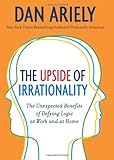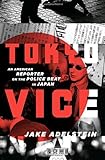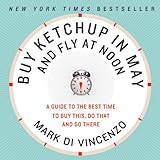I'm going to collect novel ideas for improving the American debt crisis--I'm talking about individual debt, and not the debt crisis of our crazy, national deficit.
First up, a reader comment I saw on the
New York Times today:
"There should be a direct debt exchange for consumers based in the Department of Treasury or Fed.
Taxpayers in good standing should be able to cash in high interest debt and pay it off, over time, with their taxs at 5-10%.
It makes not sense for American taxpayers/consumers to pay into a government that subsidizes the financial industry a in a dozen different ways (750 Billion TARP, 0% loans from the Fed, access to government bonds to sell) and they have these same taxpayers/consumers borrow from the financial industry at 20-30%.
And then allow fraudsters like the one's described in the article, take another bite out of these consumer/taxpayers.
Set up the direct lending program today. Make it directly accessible or accessible through credit unions which traditionally don't overcharge their customers."
~jo, on the Pacific coast (June 19th, 2010)
A recent adjustment to last year's credit card-regulating legislation has limited the amount of any fee that a credit card issuer can charge the credit card account holder. For example, a fee cannot exceed the amount of an "infraction." So, if you go over your credit card limit by $2.49, your credit card company cannot charge you a $39 fee. They can only charge you a $2.49 fee. And as I understand it, no fee can be greater than $25, but if the customer is a "repeat offender," they may lose some of these protections.
Based on these new rules, here's a 2-part idea of my own:
1. Limit the amount that banks can charge for each incidence of overdraft. If you overdraw your checking account by $10, and those ten dollars represent 3 very small purchases, the bank cannot charge you about $40 per overdraft ($120 in fees for your $10 mistake, which is what my bank, Citizens Bank, does). Instead, regulate in the same way the credit cards are now regulated--limit the fee to no more than the amount of the overdraft ($10 in this example), and cap fees at a reasonable maximum, like $30, or something.
2. Give customers the choice of whether they want their daily transactions to post in order from smallest to largest, or from largest to smallest. This is a small thing that Citizens Bank, and probably other banks as well, do to squeeze as much money as possible out of customers who are really struggling.
Here's an example that illustrates why I want these changes. There was a week during which I made a math error in balancing my checkbook. It was an honest mistake, and it resulted in my thinking I had about a hundred bucks more than I did.
I wrote my rent check, and on the night it posted, there were also about 8 tiny purchases that posted, averaging about $2 each (coffees). The total amount posting was approximately $1,600, and the available balance was, due to my error, approximately $1,500.
Citizens Bank could have cleared all 8 small purchases and overdrawn my account with the 9th purchase--the rent check for $1,575 (by the way, here in Boston, that's not a lot). It would be very easy to run the system in a pro-customer way, as I'm describing. But then Citizen's Bank wouldn't be able to wring every possible cent out of me.
What Citizens actually did was post the rent check first--the largest item--so that it immediately overdrew the account. Then all other 8 items posted as overdrawn, too. My account was approximately negative $100.
I could have remedied this the next day with the cash in my purse, but then Citizens Bank assessed its tremendous fees: $39 for each of the 9 items. $351. Plus the $100 error I'd made, my account was then overdrawn by $451, mostly because of an honest mistake I'd made, and subsequent purchases to the tune of $30 (the 8 tiny purchases responsible for almost all the fees).
Do you think that I was able to come up with $451 before the automated bills set to debit from my account (electric bill, phone bill, student loan etc.) posted? Of course I was not. (Another customer might have then been sucked into payday lending, but at least I did not go down that horrible path). However, I accumulated more fees and more overdrawn items before I finally got my next paycheck, every penny of which was necessary to pay off Citizens Bank's fees, leaving me with no money for food or gas for another 2 weeks, and sinking farther into a hole because of one, tiny honest error. Citizens Bank counts on this. They want this to happen to their customers.
If they wanted it not to happen to their customers, they wouldn't charge $451 for $30 in mistaken over-spending. They would make changes to the way they assess fees, and they would be willing to listen when customers call their customer service line, as I did, to ask for mercy and forgiven fees in an instance like mine. But they are implacable. They truly do not care.
I firmly believe that if there is an afterlife, there is a special place reserved for the people who dream up and implement predatory an abusive structures like the fee scheme at Citizen's Bank. But consumers need and deserve some protections and justice in the here and now.
Why not offer bank customers the same protections from this kind of predatory behavior that are currently being extended to credit customers?
Here's another idea of my own:
If a delinquent credit card debt is sold to a debt collection agency for pennies on the dollar, limit the amount of debt that the collector can attempt to collect to the actual outstanding debt due to purchases and regular instance.
Here's why:
A majority of delinquent credit card debt is on accounts that had predatory credit terms to begin with. Many of these accounts had credit limits as low as $300, but balances of $550 or $700 or in some cases even over $1,000.
This is what I call "invented debt." The vast majority of the debt is just fees--fees that may not even be legal to impose under current laws. During the time the account was active, the account holder might have purchased a grand total of, let's say, $500 worth of stuff, and paid a total of $800 to the credit card company. But due to the card's predatory and deceptive terms, the account is constantly accruing fees that push it farther and farther over the limit.
Eventually, the downtrodden account holder gives up, and the account is sold to a collector as bad debt.
In reality, the account holder has probably paid for every physical purchase made on the credit card, as well as considerable fees and interest. Still, the account holder is left with this "invented debt" of hundreds and hundreds of dollars.
It seems unreasonable that a third-party debt collector, who does not even represent the original credit card issuer, can purchase an invented debt of $500 for the paltry sum of perhaps $20, then tack on $200 more in "administrative" fees, and begin to put the account holder through hell for an invented debt of $700 when in reality, the account holder has actually paid for all his physical purchases, and the collector has never been harmed or damaged by the account holder, and in fact has only even laid out $20 to gain control of this "debt."
The collector will now relentlessly pursue the account holder for this money, and will quickly move to the civil court system to force collection. The courts are clogged absolutely to the gills with these cases, which are an intolerable, and unjustified strain on the public justice system.
If you doubt this, drop by your local court and witness the collection companies actually
doing business from tables in the courthouse lobbies and hallways, with long lines of "invented debtors" missing work and forking over their household's grocery money to avoid going to trial. What misery! What misuse of the American court system. How unconscionable that this abuse persists!
As I've said before, these financial predators are living examples of the ancient Biblical text:
"And again I say unto you, It is easier for a camel to go through the eye of a needle, than for a rich man to enter into the kingdom of God."
Matthew 19:24
But Americans need justice against these people during
this lifetime.
Here's one more idea. It's a riff on the New York Times reader's comment at the top of this page. Instead of using the federal government, you do the same thing privately.
What would be really amazing is if a non-profit organization could be formed that would buy up these bad debt bundles, and then instead of doing what the collectors do, simply contact the debtor and give them the chance to "buy back" their debt for whatever the non-profit paid for it, plus something nominal, like 1%, to fund the organization. Or you could even do a 10% fee and use the return to fund additional pro-consumer financial programs.
**************November 18, 2010**************
Here's another idea:
Immediately allow all persons receiving federal or state unemployment compensation to use this compensation in order to start a business.
Allow these entrepreneurs to make sales and grow their new businesses without risk of losing their compensation. Allow compensation claims to run their usual course. Neither impose early terminations, nor allot special extensions.
This is already legal under federal law, but must be approved or implemented on a per-state basis.
Despite our tattered economy, and the number of fabulously qualified and motivated Americans collecting unemployment and unable to find a decent job, only a handful of states (Delaware, Maine, New Jersey, New York, Oregon and Pennsylvania) are bothering to move in any direction toward programs like these.
What on earth have we got to lose? It's like the state has some vested interest in making sure nobody brings in more than $500 per week after losing a job, and if they do, then we're darned well going to stick it to them! Are we crazy?
Here we have tens of thousands of people who are prepared to create a job for themselves--some of whom will become successful enough to create jobs for others--all at a small fraction of the price that a typical small business pan would be looking for in a start-up bank loan (from all those fat-on-taxpayer-money, non-lending banks, right?).
These entrepreneurs are willing to bootstrap everything, work 18-hours a day, bend over backwards and then some, and generally work harder than they ever have in their lives (as every small business owner knows is true) to lift their little piece of dream off the ground.
And they can do it with the money they're already eligible to receive under unemployment compensation law, if states will just wake up and get with the program.
I'll continue to post more ideas as I come across them.
 “A marvelous book that is both thought provoking and highly entertaining, ranging from the power of placebos to the pleasures of Pepsi. Ariely unmasks the subtle but powerful tricks that our minds play on us, and shows us how we can prevent being fooled.”
“A marvelous book that is both thought provoking and highly entertaining, ranging from the power of placebos to the pleasures of Pepsi. Ariely unmasks the subtle but powerful tricks that our minds play on us, and shows us how we can prevent being fooled.” "Ariely shows us the other side of the irrationality coin: the beneficial outcomes and pleasant surprises that often arise from irrational behavior. Although pleasant should be taken as a relative term, since the outcomes are not necessarily pleasant for the person who was behaving irrationally. Take, for example, Thomas Edison’s obsession with DC current, and his irrational hatred of AC: trying to prove how dangerous AC was, he inadvertently—with his development of the electric chair—demonstrated to the world how powerful it could be. Ariely is an engaging and efficient writer, amusing us with stories about irrational behavior while staying away from needless technical terminology and bafflegab. Thought-provoking, entertaining, and smart: a winning combination." ~David Pitt
"Ariely shows us the other side of the irrationality coin: the beneficial outcomes and pleasant surprises that often arise from irrational behavior. Although pleasant should be taken as a relative term, since the outcomes are not necessarily pleasant for the person who was behaving irrationally. Take, for example, Thomas Edison’s obsession with DC current, and his irrational hatred of AC: trying to prove how dangerous AC was, he inadvertently—with his development of the electric chair—demonstrated to the world how powerful it could be. Ariely is an engaging and efficient writer, amusing us with stories about irrational behavior while staying away from needless technical terminology and bafflegab. Thought-provoking, entertaining, and smart: a winning combination." ~David Pitt








